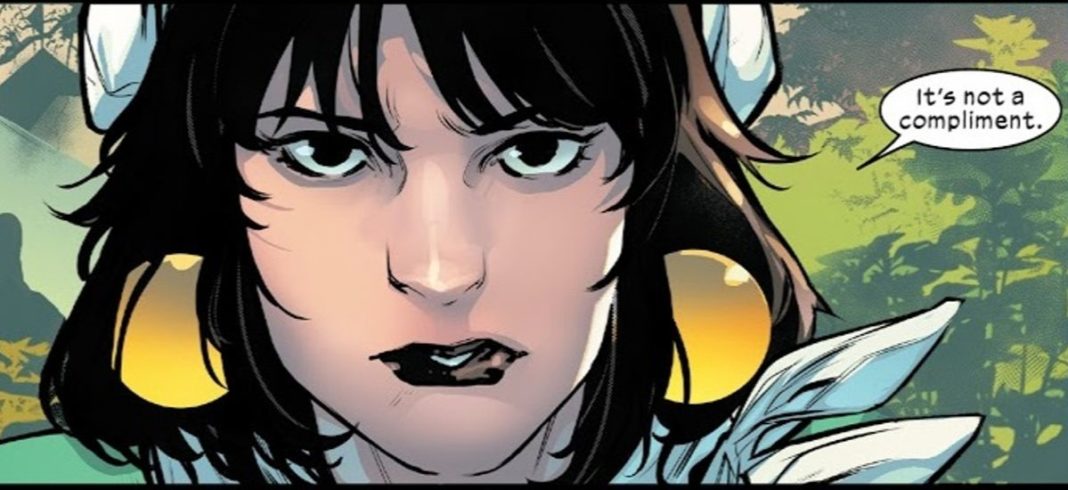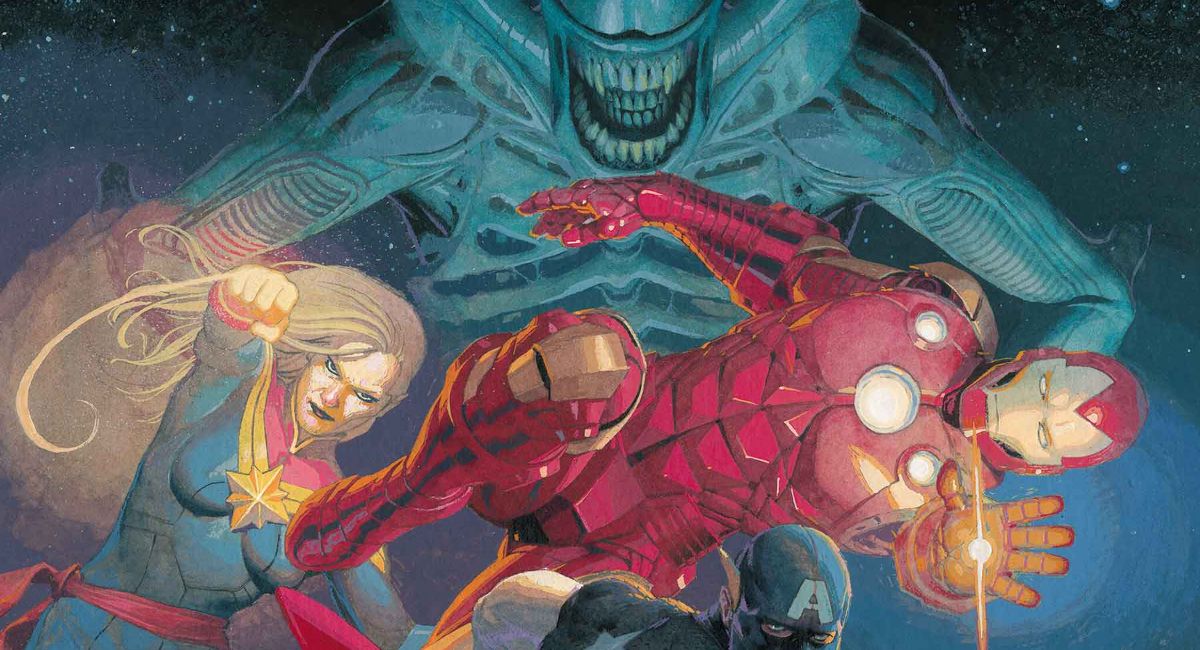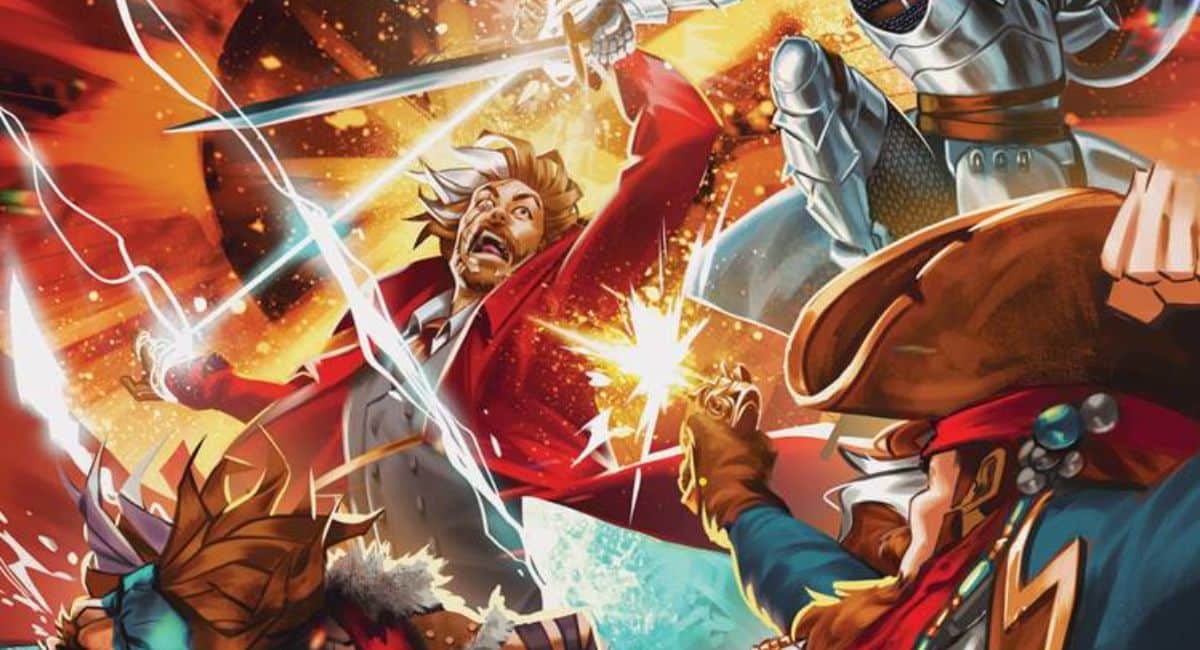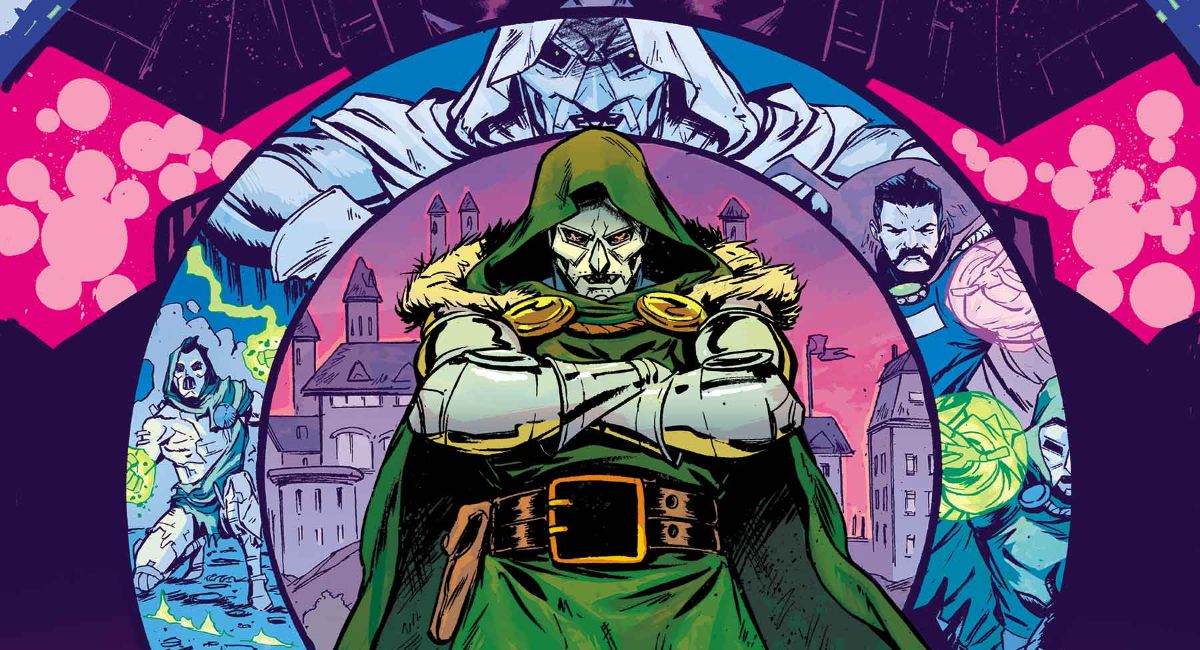After 12 glorious weeks, Powers of X #6 has finally arrived. Not only are the dueling House of X and Powers of X series an accomplishment from a scheduling standpoint, but the final issue successfully wraps up the prologue to Jonathan Hickman’s on-going story and sets up new, strange wrinkles to come.
Spoilers ahead!
Hidden for most of the series, Powers of X #6 finally inserts Moira MacTaggert back into the center of the action. Revisiting the moment that kicks everything in motion — the encounter between Moira and Xavier where she psychically unveils her many lives in House of X #2 — the closing issue makes it clear that Krakoa, and everything that is coming next, is Moira’s dream — not Xavier’s.

Most importantly, this issue firmly establishes that Moira MacTaggert is a complex, central character herself, not a femme fatale who is pulled down by others around her. In fact, readers learn through her diary entries that Moira considers herself a manipulative, corrosive force and at one point she voices so much concern she is afraid she may “fracture [Xavier’s] psyche and eventually unleash something unexpected on this world.”
Likewise, in her penultimate journal entry, she voices that she wants to “make [Magneto] a better man,” but all of her prodding simply results in him becoming “an enemy” all over again. Even the fact that the three of them are secret allies once again is likely due to Moira’s careful manipulation. It’s her actions that bring people down, not the other way around.
After the hidden mechanism behind mutant reincarnation was introduced in House of X #5, it seemed like mutants’ new thing would be rebirth. The X-Men, or X-Force, or New Mutants if you want to get nitty-gritty here, will go on the field, fight for a bit, and if they perish, they will be resurrected with the help of the mystical Five and Cerebro. But Moira’s revelations, especially at the end of Lifetime 6 — 1000 years in the future as mutants stare down ascension into the Phalanx — prove that mutants are destined to lose. As Albert King would say, “if it wasn’t for bad luck, [mutants] wouldn’t have no luck at all.” Moira’s entire chore of self-isolation is an attempt to lie to the people about their fate, to assuage them of their fears that no matter what path they take forward, each one will lead to the same devastating destination.
Critically, Moira also learns in her sixth life that machines aren’t the real enemy: it’s organic creature’s ability to manipulate their own DNA. From a biological standpoint, mutants are caused by reactions to an environment, a series of adaptations over time. Similarly, machines — everything from computers to guns — are a simple adaptation of the first tools man ever made. This backs up the experience Moira had in her seventh life, where she realized AI technology is an inevitability of technological evolution — even if she assassinates the Sentinel inventors before they can create their first mutant-killing devices.
Both mutants and machines are destined to exist, and as Xavier’s own dependency on Cerebro highlights, mutants need machines to thrive. Genetic modifications, on the other hand, pose a threat to mutants. Moira realizes she has to control how people modify themselves to ensure mutant survival.
To speculate for a moment, it seems like Moira’s scientific skills and manipulative tendencies will return in a major way soon. When Xavier introduced Krakoa to the world, he mentioned three drugs that would also improve humans’ lives. Through the eradication of diseases and prolonging life, Xavier offered everyone on the world an improved existence if they were willing to give the mutants a lifeline as well. While that certainly sounds nice, and I’m sure the drugs will improve Marvel Universe inhabitants’ lives, the drugs should be looked at as Moira’s attempt to control the biological modifications of humans.
Instead of allowing people to modify their own genes and potentially bring about the rise of Homo novissimo, humans will become dependent on mutant science and medicine. There’s no reason to think a trained biologist who is capable of creating a “mutant cure” wouldn’t tinker with the formula to somehow make human DNA less susceptible to genetic modification over time. Readers don’t even know whose idea the drug was in the first place, because it’s clearly more suspicious if someone like Moira initially developed the drug rather than someone like Henry McCoy.
While much of Moira’s end goal is still relatively obscure, it’s clear that she is dedicated to something larger than herself. Excluding her first three lives, Moira has done everything she can to advance mutant causes. Taking on extreme paths — like single-handedly killing every member of the Sentinel-inventing Trask family (Lifetime 7) or joining with Apocalypse (Lifetime 9) — shows just how far she is willing to go to achieve some kind of sustainable future for mutants. While each of her former lives ends in death and defeat, she consistently returns, determined to accomplish her goal; with each reincarnation, she applies the lessons learned from her previous life. For Moira, any action — from lying to a life-long friend to faking her own death — is justifiable as a means to an end.
House of X #2 introduced the concept that Moira and Destiny, a precognitive mutant who can see the future and is aware of her reincarnation ability, are locked in what can be described as an eternal rivalry. In her third life, Moira develops a “mutant cure,” and despite the fact that she doesn’t mean to cause harm to the mutant community, Destiny sees how humans will corrupt the discovery. Destiny warns Moira that she only has 10 total reincarnations — 11 if Moira “make[s] the right choice at the end” — and that Destiny will go out of her way to kill Moira in each of her lives if any subsequent plans could lead to problems for mutants.

In Power of X #6, Moira is insistent that Destiny can’t be resurrected on Krakoa, or she will reveal that mutants (and Krakoa with it) are destined to lose — potentially delegitimizing the important, nation-building work being done. While shaking people’s faith in a new dream is never a good idea, Moira’s ego clearly plays into this decision.
The only constant in each one of Moira’s lives is that she herself is there, fighting for mutant rights with anyone who supports her goals. Everything that Moira has seen and fought through indicates that mutants are always destined to lose, but Moira can only see the outcomes that she herself has participated in. Maybe the key to mutants finally winning is Moira taking herself out of the equation; no Lifetime 11, just mutants plotting their own path forward without her.
I’m not crying, you’re crying. Okay, yes, I’m crying too; I just can’t believe the lovely HOX/POX saga has finally come to a close. Luckily, there are some awesome-looking stories coming out of the HiX-Men universe soon (X-Men #1 hits stands Wednesday), but I’m still sad to see this saga close. Hickman and all of his creative collaborators have succeeded at creating one of the most engrossing, entertaining X-Men stories of all time.
We’re still figuring out how this column will continue into the prophesied Dawn of X, but you can keep yourself busy with Samantha Puc’s fantastic list of Dawn of X related theories!











Comments are closed.